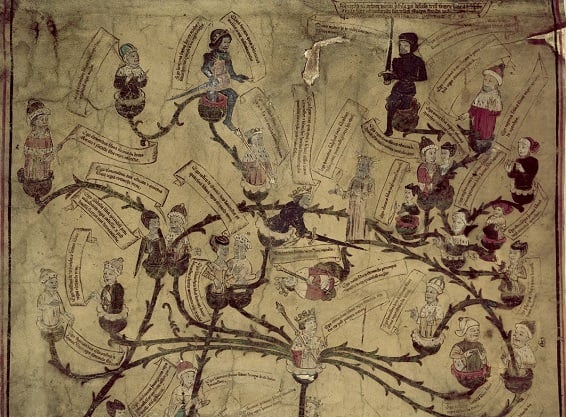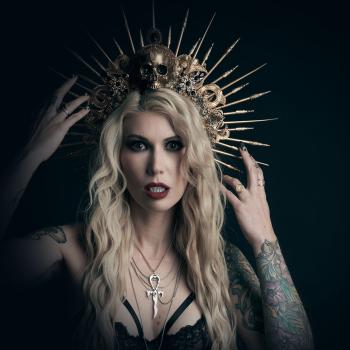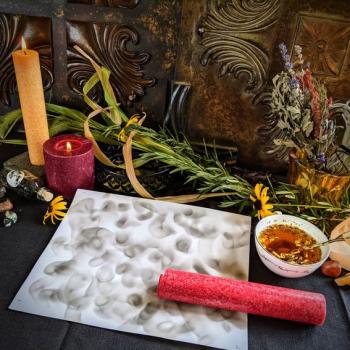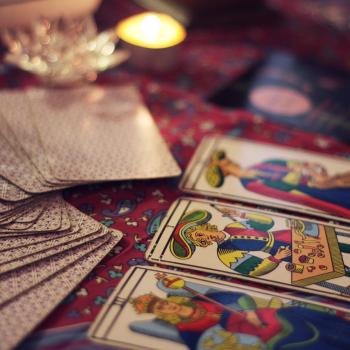Paganism and folk magic are intimately tied to history, heritage and tradition. There are many rituals and customs that call upon the help of the ancestors, honoring them and paying them tribute. Looking into the past for clues about what people believed and how they practiced their spiritual traditions has informed many various reconstructions of the Pagan past. The superstitions and stories that are passed down orally through family lines, often unknowingly, have provided a matrix for countless folk traditions to grow around. Ancestor veneration is a global phenomenon that can be traced back to the most archaic cultures. Some of the oldest tribal deities were deified ancestors, leaders of the tribe empowering their descendants from beyond the veil. There is so much that can be learned from understanding our ancestry, and while some things are better left forgotten or lost in the shadows we owe our current place in the world to those who came before us, for we stand on our ancestor’s shoulders.
 Genealogy of Edward IV. Wikimedia Commons.
Genealogy of Edward IV. Wikimedia Commons.
Digging at the Root of the Ancestral Tree
I think that understanding our past helps us to better understand our place in the present. I have recently been digging up my family’s past through and investigation of my family tree. I am lucky to live in a city that has the nation’s second best genealogy resource center. In addition to the physical archives and access to Ancestry.com, I have also taken a DNA test to determine the percentages of my ethnicity. My grandfather has also become interested in learning about his heritage, and has also taken the Ancestry DNA test. Through a comparison of our two tests I have gained insight into the genetic history of my maternal lineage. This has also been a meaningful bonding experience for the two of us. Helping him uncover details about his family and discover pictures of ancestors that he hadn’t seen has been rewarding. I feel that it is never too late to learn about your family history, and at 82 years old, my grandfather is still learning things that he didn’t know about his family.
By discovering my European heritage, I fell that I have gained a deeper appreciation to the traditions that I have studied over the years. It is intriguing that the cultural traditions I have gravitated to most over the years have shown up in my ancestry. Learning of my familial connection to Northern Europe, including Norway and Sweden, England and Ireland, and Germanic Europe has brought another layer of depth and meaning to my spiritual practice and research.
While I don’t think that it is a requirement for one to follow the traditions of their Pagan ancestors, I think that having that having the knowledge of these things is beneficial. For those of us from diverse backgrounds, it would be impossible to pin point our practices to one single tradition. There was also a blending of practices and pantheons in the ancient world. The lands of our ancestors were a melting pot for syncretic polytheistic traditions. While reconstructing these traditions in their entirety is not something that is achievable our ancestry provides us a touchstone that connects us to the past.
















